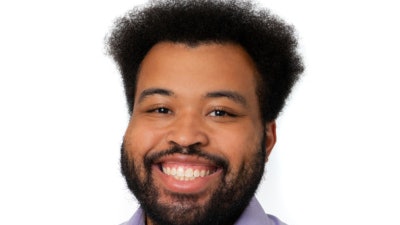“It’s a reminder that you are a representation for many others and many other players that look the same way I do. Your color shouldn’t matter. Your evidence of your work should.”
After leading the University of Notre Dame’s football team to a 23-10 victory over the University of Georgia in the Sugar Bowl, head coach Marcus Freeman Christian Collins
Christian Collins
It's fitting that not only will this year’s historic national championship take place on Dr. Martin Luther King, Jr. Day, but also that the national theme for this year’s Black History Month is “African Americans and Labor.” Work, mainly the unpaid work of chattel slavery, is the entire genesis of the existence not only of Black people in the United States but also the nation itself. The evidence of the work of Black people has never truly mattered in this country, and college football is one of the most visible industries where color does unfortunately matter.
Coach Freeman himself demonstrates the slow progress of valuing the work of Black figures in college football through his mirrored history with Rudy Hubbard, the first Black head coach to lead a team to a Division 1-AA (now FCS) national championship. Freeman and Hubbard were both born in Ohio, Freeman being born at Fairborn’s Wright-Patterson Air Force Base and Hubbard in the Youngstown suburb of, fittingly, Hubbard. Both attended and graduated from The Ohio State University as football players, Freeman as a linebacker and Hubbard as a running back. Columbus was also where both men began their coaching careers, Freeman as a graduate assistant under Jim Tressel in 2010 and Hubbard as an assistant, and the first-ever Black member of Ohio State’s coaching staff, under Woody Hayes in 1968.
When Hubbard left Ohio State in 1974 to take the head coaching job at Florida A&M University, HBCUs were the only programs willing to hire Black head coaches regardless of the evidence of their capabilities. It would be another five years before Willie Jeffries broke the Division 1-A (now FBS) color barrier at Wichita State, and seven years before Dennis Green became the first Black head coach at a Power 4 program upon accepting the Northwestern job.
As Freeman and Franklin take the stage in the Orange Bowl, the college football landscape hasn’t made much progress. In 2012 there were 45 Black head coaches across 248 Division 1 football teams, and for 2024 there were 42 Black head coaches for 258 teams. Only 16 out of 134 FBS schools currently have a Black head coach, although 7 of those coaches are at Power 4 programs. The SEC is the only Power 4 conference without a Black head coach and hasn’t had one since Cadillac Williams spent 4 games as an interim for Auburn to close the 2022 season.
One could see those numbers and assume that there hasn’t been a large Black coaching pool to draw from, but that assumption would be incorrect. 33 percent of graduate assistants in Division 1 football and 43 percent of all other assistants for 2024 were Black. Where Black coaching talent is lost is the transition from assistant to coordinator. Only 26 percent of Division 1 defensive coordinators were Black in 2024, the highest percentage since NCAA data starts in 2012, and only 11 percent of offensive coordinators, the second-lowest share in that same period.
It also can’t be ignored that this lack of matriculation into coaching positions is occurring in a sport core to a broader reckoning over the evidence of work not mattering. Football is one of two sports, along with men’s basketball, which are the focal point of numerous legal battles regarding the rights of athletes to receive a share of the revenue they generate. The overwhelming majority of Black men in college athletics are enrolled for those two specific sports, underscoring how the fight by schools to place limits on the ability of athletes to be financially compensated is really the fight against Black labor being fairly paid.
The United States has never been a meritocracy when it comes to recognizing the evidence of the work of Black people, which is a lesson that Freeman, Franklin, and Hubbard amongst many others have learned throughout their efforts to establish successful careers within college football. Regardless of who between Freeman and Franklin gets a chance to make history on January 20th, it’s embarrassing for institutions, the sport, and the country that in 2025 Black history is still being made like this.
Christian Collins is a policy analyst at the Center for Law and Social Policy.



















